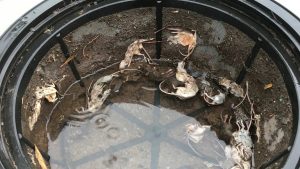As southeast Queensland experiences one of the wettest springs in years, rural residents are raising concerns about potentially contaminated drinking water after finding poisoned mice in their tanks, as the mouse plague continues to worsen.
 Lucy Thackray of ABC reports frustrated landholders are continuing to try to reduce mice populations with rigorous baiting programs, but the problem isn’t showing any signs of slowing.
Lucy Thackray of ABC reports frustrated landholders are continuing to try to reduce mice populations with rigorous baiting programs, but the problem isn’t showing any signs of slowing.
Louise Hennessy, from Elong Elong in Central West NSW, has issued a warning to other rural residents about potential health implications for humans and animals after finding baited mice in her drinking supply.
She made the discovery when she climbed up her house tank to check a blockage and was immediately overwhelmed by a revolting smell.
“It was so horrifying, I thought it would make a good picture to remind people to be vigilant about their water tanks,” Ms Hennessy said.
“We always filter the water going into our house from the tanks, so for us personally we feel we’ve covered our precautions so we didn’t notice anything with the taste. But the smell of the mice at the top of the tank was so disgusting.”
Dubbo Regional Council’s environment and health officer Simone Tenne said people often did not consider drinking water contamination.
“Rainwater tanks are perceived to be a clean source of drinking water, but they often have frogs in them, insects, a large amount of bird faeces which has come down off the roof,” Ms Tenne said.
“The public health sector recommends people do some form of treatment whether it be chlorination, a bit of acidification or some sort of filtration to avoid getting bacteria inadvertently through drinking contaminated water.”
Ms Tenne said health issues could be triggered by mice in drinking water.
